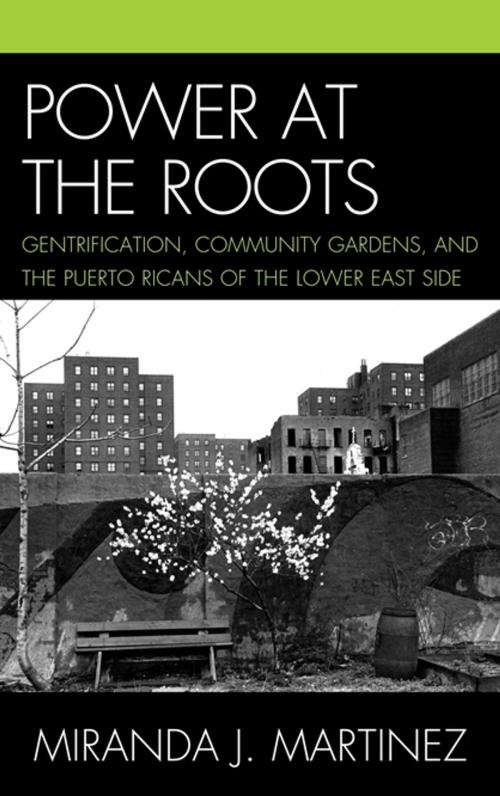Power at the Roots
Gentrification, Community Gardens, and the Puerto Ricans of the Lower East Side
Nonfiction, Social & Cultural Studies, Social Science, Sociology, Urban, Cultural Studies, Ethnic Studies, African-American Studies| Author: | Miranda J. Martinez | ISBN: | 9780739146262 |
| Publisher: | Lexington Books | Publication: | September 25, 2010 |
| Imprint: | Lexington Books | Language: | English |
| Author: | Miranda J. Martinez |
| ISBN: | 9780739146262 |
| Publisher: | Lexington Books |
| Publication: | September 25, 2010 |
| Imprint: | Lexington Books |
| Language: | English |
Through direct engagement with gardeners, activists, and residents, Miranda Martinez shows the breadth and diversity of the community gardening movement and how these groups inserted themselves into local politics and development to create change. She demonstrates how real people are effective as social forces amid large scale urban change and looks at the complexities and contradictions involved in transformations of urban neighborhoods. One of the most important contributions of this study is its focus on the Puerto Ricans of the Lower East Side and their struggle to sustain its Latinidad. It goes deeply into the ethnic and cultural significance at the neighborhood and personal level to show the contradictory meanings of gentrification to Puerto Ricans and others, and more importantly, the ways that the history and culture of Puerto Ricans are ignored, devalued, and erased. By going to the grassroots, this book vividly demonstrates how Puerto Ricans interact with the global and local trends involved in gentrification and how the struggles against displacement can alter the boundaries of the process.
Through direct engagement with gardeners, activists, and residents, Miranda Martinez shows the breadth and diversity of the community gardening movement and how these groups inserted themselves into local politics and development to create change. She demonstrates how real people are effective as social forces amid large scale urban change and looks at the complexities and contradictions involved in transformations of urban neighborhoods. One of the most important contributions of this study is its focus on the Puerto Ricans of the Lower East Side and their struggle to sustain its Latinidad. It goes deeply into the ethnic and cultural significance at the neighborhood and personal level to show the contradictory meanings of gentrification to Puerto Ricans and others, and more importantly, the ways that the history and culture of Puerto Ricans are ignored, devalued, and erased. By going to the grassroots, this book vividly demonstrates how Puerto Ricans interact with the global and local trends involved in gentrification and how the struggles against displacement can alter the boundaries of the process.















